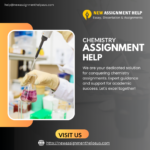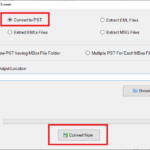In the complex landscape of food and drug regulation in the United States, navigating the requirements set forth by the Food and Drug Administration (FDA) and the United States Department of Agriculture (USDA) can be a daunting task for businesses. Compliance with FDA detentions, inspections, USDA permits, and managing on-hold shipments are critical aspects that demand attention to detail and a thorough understanding of regulatory protocols. In this comprehensive guide, we will delve into each of these key areas to provide clarity and guidance for businesses seeking to ensure compliance and maintain the integrity of their products.
FDA Detentions: Understanding the Process
FDA detentions occur when a shipment of food, drugs, medical devices, or other regulated products is held at the border or port of entry due to concerns regarding safety, compliance, or documentation issues. Detentions can disrupt supply chains, incur significant costs, and damage the reputation of businesses if not handled efficiently.
Causes of FDA Detentions
- Safety Concerns: Products that pose a potential risk to public health due to contamination, adulteration, or mislabeling may be subject to detention.
- Regulatory Non-Compliance: Failure to meet FDA regulations regarding labeling, ingredient lists, manufacturing practices, or other requirements can lead to detentions.
- Documentation Issues: Incomplete or inaccurate documentation, such as Certificates of Analysis (COA), Certificates of Free Sale (CFS), or import declarations, may trigger detentions.
Responding to FDA Detentions
- Communication: Prompt and transparent communication with the FDA is crucial. Businesses should provide requested information, address concerns, and cooperate with FDA inspectors.
- Corrective Actions: Implement corrective actions to address the root cause of the detention, such as improving manufacturing processes, updating labeling, or enhancing quality control measures.
- Legal Representation: In cases where legal expertise is required, businesses may seek assistance from attorneys specializing in FDA regulations to navigate the detention process effectively.
FDA Inspections: Ensuring Compliance
FDA inspections are conducted to assess compliance with regulatory requirements and verify the safety and quality of products. Routine inspections, pre-approval inspections for new products, and follow-up inspections are integral parts of the FDA’s oversight process.
Preparation for FDA Inspections
- Documentation Review: Ensure all records related to product manufacturing, labeling, testing, and distribution are accurate, up-to-date, and easily accessible.
- Training and Education: Train employees on FDA regulations, inspection procedures, and their roles during inspections to facilitate smooth interactions with inspectors.
- Mock Inspections: Conduct internal mock inspections to identify potential areas of non-compliance and address them proactively before the FDA inspection.
During FDA Inspections
- Cooperation: Cooperate fully with FDA inspectors, providing access to facilities, records, and personnel as requested.
- Transparency: Be transparent in addressing any identified deficiencies or deviations from regulatory requirements. Promptly implement corrective actions where necessary.
- Documentation: Maintain thorough documentation of the inspection process, including observations, findings, and corrective actions taken.
Post-Inspection Follow-Up
- Response to Inspection Observations (Form 483): Address any observations or deficiencies identified during the inspection by developing and implementing corrective action plans.
- Communication with FDA: Maintain open communication with the FDA regarding the status of corrective actions and any additional information requested by the agency.
- Continuous Improvement: Use insights gained from the inspection process to continuously improve internal processes, quality control measures, and compliance efforts.
USDA Permits & On-Hold Shipments: Navigating Agricultural Regulations
The United States Department of Agriculture (USDA) regulates the import and export of agricultural products, ensuring their safety, quality, and compliance with applicable standards. USDA permits and managing on-hold shipments are essential aspects of compliance for businesses involved in the agricultural sector.
USDA Permits
- Import/Export Permits: Obtain the necessary permits from the USDA for importing or exporting agricultural products, including fruits, vegetables, grains, and animal products.
- Phytosanitary Certificates: For plant products, ensure compliance with phytosanitary requirements and obtain phytosanitary certificates to demonstrate freedom from pests and diseases.
- Animal Health Certificates: For animal products, comply with FDA Detentions regarding animal health and obtain the required certificates to verify the safety and quality of the products.
Managing On-Hold Shipments
- Communication with USDA: In cases where shipments are placed on hold by the USDA due to concerns regarding safety or compliance, maintain open communication with USDA officials.
- Documentation Review: Review shipment documentation to identify any discrepancies or issues that may have led to the hold, and take corrective actions as necessary.
- Resolution of Issues: Work collaboratively with USDA inspectors to resolve any concerns regarding the safety, quality, or compliance of the shipment, including implementing corrective actions and providing additional information or documentation as requested.
Conclusion: Prioritizing Regulatory Compliance
In the highly regulated environment of the food and drug industries, compliance with FDA and USDA regulations is paramount to ensure the safety, quality, and integrity of products. By understanding the processes involved in FDA detentions, inspections, USDA permits, and managing on-hold shipments, businesses can proactively address compliance challenges, mitigate risks, and maintain the trust of consumers and regulatory authorities alike. Through diligent preparation, transparent communication, and a commitment to continuous improvement, businesses can navigate regulatory complexities effectively and thrive in an environment of heightened scrutiny and accountability.0



































![Detailed Guide to Yamunotri: The First Dham [Complete Travel Guide] 34 Detailed Guide to Yamunotri: The First Dham [Complete Travel Guide]](https://guest-post.org/wp-content/uploads/2024/07/Char-Dham-150x150.png)









